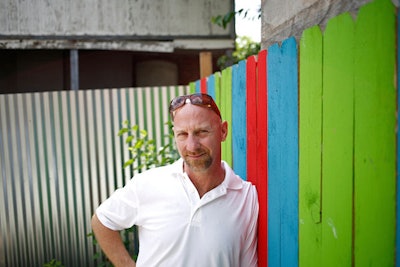
Patrick Whelan attended the first Bonnaroo in 2001, traveling to rural Tennessee with a group of friends who wanted to experience the music festival without drugs or alcohol. What started as a personal preference has grown into a movement at music festivals across the country—as well as a tool for festival producers who are increasingly facing pressure to confront drug use at their events.
After several years with an informal presence at Bonnaroo, the relationship has become more formal, with the festival providing a dedicated tent on the central festival grounds since 2010 and the movement taking on the name “Soberoo.” It has become a safe space for clean and sober music fans—a mix of people who have always abstained and those who are in recovery. Musicians, stage- hands, and tour management are also welcome to attend. It’s also an oasis for designated drivers, pregnant women, families, and more.
“Some people just get exhausted at these events. Their guard gets dropped a little bit and they might be tempted,” Whelan says. “We’re creating that home base for them. It’s a nice part of the festival, but it’s also helping to maybe save someone’s life.”
[PULLQUOTE]
The space hosts four meetings a day, along with activities organized by the community such as guided meditation sessions and yoga. Volunteers staff the tent from about 10 a.m. to midnight daily, offering candy and stickers with phrases such as “This is your brain on hugs” and “One show at a time.”
Other festivals started to notice and request similar services. The group has expanded to a dozen music festivals, each with its own name. There’s SoberSide for Lollapalooza in Chicago, SoberBall for Governors Ball in New York, and Sober Sailing at the Forecastle Festival in Louisville, Kentucky. For festivals where the group doesn’t have an official presence, Whelan shares best practices with people who want to start their own sober communities.
It’s all a side project for the 50-year-old Whelan—who has a full-time day job at a coffee and tea importing business in Louisville—but one that has grown into a 501(c)(3) nonprofit called Harmonium, complete with a board of directors. Their efforts are funded through donations that pay for expenses such as insurance and a website. Whelan says he plans to devote more time fund-raising in the festival off-season.
Back to the Most Innovative People in Events and Meetings list



















